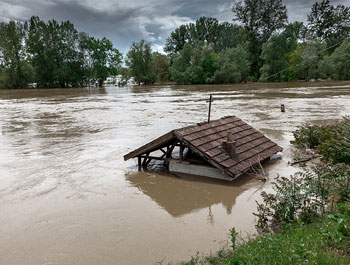On Tuesday, September 12, 2017, the Federal Emergency Management Agency (FEMA) announced Hurricane Harvey and Irma claim handing process for buildings insured under the Standard Flood Insurance Policy (SFIP), specifically recognizing that catastrophic flooding from those storms demands “fast and accurate payments to all National Flood Insurance Program (NFIP) policyholders. The published guidance is an effort to facilitate prompt post-inspection advance payments to policyholders. The Fact Sheet attached outlines the steps associated with the claims process. (Flood Fact Sheet)
FEMA may authorize advance payments to policyholders before inspection by an adjuster in certain circumstances, emphasizing that advance payments are not available for additional living expenses such as temporary housing after the storm.
Policyholders have an obligation to minimize mold damages as much as possible, however coverage needs to be verified before engaging a mitigation contractor to perform water extraction. Kaye, Bender, Rembaum strongly advises against signing any open-ended or undefined contracts and all contracts should be reviewed by Association counsel before the Board signs off. For water extraction or emergency services in units, associations should ensure there are separate contracts for each unit with a clearly defined scope of work along with associated costs to submit to the owner’s carrier. Community association managers (CAMs) and/or board members must make an effort to contact owners before arranging to perform water extraction or removal of contents.
If possible require the owner to separately contract for these services. If that is not possible, make sure your contract contains limiting language indicating that the association is only signing as an agent for the owner under its emergency powers (§718.1265 and §720.316, Florida Statutes). Please note, however, emergency powers set forth in Florida Statutes are only available for the limited period of time reasonably necessary to protects the health, safety and welfare of those affected and to mitigate further damages or effectuate emergency repairs.
By now you should have already reported the claim if you have suffered a flood loss – it is important to file the claim with the carrier, not simply the agent, although in many cases the agent may submit the notice of claim on your behalf. The NFIP policies generally require policyholders to mitigate (or reduce potential) damages by separating damaged from undamaged property and retaining compromised materials after removal from the home for adjuster inspection. Photographs and video records are extremely helpful in establishing the scope of loss.
Additionally, FEMA reminds those impacted that:
FEMA does not authorize individual contractors to solicit on its behalf. Beware of any individual contractors contacting you directly on behalf of FEMA to sign you up for debris removal or remediation services.
If you have any concerns about individuals representing themselves as FEMA or would like to report fraud, please contact the National Center for Disaster Fraud at 1-866-720-5721 or via email at disaster@leo.gov.
Federal and state workers never ask for, or accept money, and always carry identification badges
There is NO FEE required to apply for or to get disaster assistance from FEMA, the U.S. Small Business Administration or the state.

